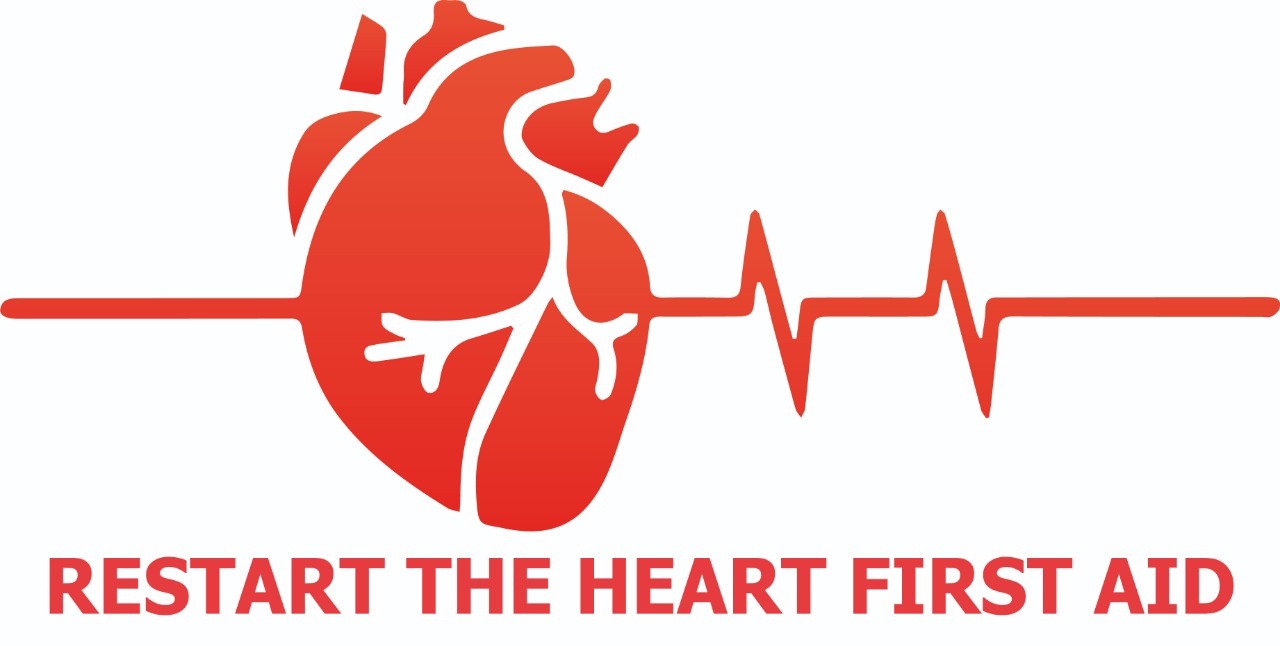Frequently Asked Questions
What Courses Do You Teach and How Long is the Training?
Standard First Aid CPR AED
Two-days 13 hours. This includes breaks and lunches.
Standard First Aid CPR AED – Blended
A combination of virtual learning (6.5 hours) and in class skill development (6.5 hours)
Standard First Aid CPR AED – Recertification
A focus on hands-on skills and medical emergencies. – 6.5 hours
Emergency First Aid CPR AED
One-day 6.5 hours. This includes breaks and lunches.
Emergency First Aid CPR AED – Blended
Again, this course is split in half with 3 hours virtual online learning and 3.5 hours in class.
Emergency First Aid CPR AED – Recertification
A focus on hands-on skills (CPR, choking, bleeds). 3-4 hours
Basic Life Support BLS
This course is between 3-4 hours depending on recertification/certification
Lunch & Learn Workplace Discussions
These additional workplace discussions can range from 15-30 minutes depending on the topic, however we recommend combining multiple topics to create an hour or 90 minute lesson for your group.
What Are the Differences Between CPR A, C, BLS CPR and Blended?
CPR A
This level of CPR is usually required at work to meet workplace health and safety requirements. CPR A involves skills related to CPR, choking and circulatory emergencies for adults only that take just a few hours to learn. In most cases, for CPR purposes, an adult is 8 years old and older. This certification also includes training on the use of an Automated External Defibrillator (AED).
CPR C
CPR C is the level that the majority of Canadians complete. It covers all CPR and choking techniques for adult, child, and infant, as well as two-rescuer CPR and includes Automated External Defibrillator (AED) training. The techniques are easy to learn and have been simplified over the years to help trained individuals better remember the necessary skills in the event of cardiac arrest.
BLS
If you are a professional first responder or healthcare provider then this is likely the level for you. This level is more in keeping with the skills required for teams of professional first responders, like paramedics and firefighters, or hospital and clinic healthcare workers, like nurses and doctors . This course is just a few hours long and is valid for 1 year. This means to remain current, certificate-holders must recertify their skills prior to the expiry date on the certification.
CPR
This cardiopulmonary resuscitation (CPR) program addresses adult, child and infant life threatening emergencies. In addition, this course will provide training on how to operate an Automated External Defibrillator (AED) in incidents of sudden cardiac arrest. Providing a shock from a defibrillator to a cardiac arrest victim can save a life. This course includes the latest CPR guidelines to provide the best chance at survival.
Blended
Standard/Emergency First Aid CPR AED -Blended training combines in-person instruction combined with online theory and information components. Blended learning offers an added level of flexibility with students able to complete the theoretical and informational components of their courses on a schedule and rhythm that works for them. Our Blended First Aid training courses allow students to learn the hands-off portions of the course at their own pace while benefiting from the presence of in-person training for more hands-on instruction.
Do I Have to Take CPR Every Year?
Most first aid courses are valid for 3 years, however healthcare related occupations may require annual CPR recertification. CPR may need to be refreshed every 12 months to remain valid.
What Topics Do You Cover in the Training?
We cover a wide range of topics including and not limited to: Terms and Objectives, Legalities and Community Involvement, Disease Transmission, Priorities of First Aid, Chain of Survival, Scene Management, Cardiopulmonary Resuscitation (CPR), Automated External Defibrillator (AED), Deadly Bleeds and Wounds, Shock and Fainting, Choking, Head and Spinal Injuries, Medical Conditions (Asthma, Anaphylaxis, Diabetes, Seizures), Heart Health and Cardiovascular Diseases, Stroke, Infections, Burns, Bites, Strings and Poisons, Broken Bones and Fractures, Chest and Eye Injuries, Heat and Cold Emergencies, Opioid Overdose, Multiple Casualty Incidents (MCI’s).
Where Do You Teach the Training?
We teach our courses all over the Province of Ontario. Sudbury, Windsor, Toronto, Barrie, Ottawa, Thunder Bay, Chatham-Kent, Etobicoke, Peterborough, Kanata, Sault Ste. Marie, Sarnia, North York, Muskoka, Nepean, North Bay, London, Scarborough, Gravenhurst, Kingston, Kenora, St. Thomas, Mississauga, Orangeville, Brockville, Dryden, Stratford, Brampton, Uxbridge, Cornwall, Kitchener, Vaughan, Port Perry, Belleville, Waterloo, Richmond Hill, Owen Sound, Cobourg, Cambridge, Markham, Guelph, Whitby, Oshawa, Ajax, Pickering, Brantford, Oakville, Burlington, Hamilton, Milton-Halton Hills, St. Catharines-Niagara are all within reach for our instructors.
What about COVID-19 and First Aid Training?
We have reopened as of July 2020. We adhere to COVID-19 safety guidelines that include reduced classroom capacity that allow us to follow physical distancing recommendations, a review our teaching methods and we will always do our best to accommodate each participant. Participants are required to bring a mask or facial covering to the course. We always supply masks if you forget one. Participants are reminded to wash their hands and sanitize throughout the course. Hand sanitizer will be offered throughout the course. If you are not feeling well, please stay home. If you are unable to attend for this reason, you will be rescheduled for a future class, no additional fees necessary. The safety of our participants and instructors is our utmost concern. We are taking precautions to minimize the risk of COVID-19 transmission during CPR classes to make sure you have a safe training environment. We follow all health and safety guidelines from medical authorities to keep everyone safe.
What Happens if I Fail the Training?
We will do everything possible to help our participants succeed. There are tests and quizzes involved with each course you choose, but we are not out to ‘trick’ you. We understand that everyone learns in a different way and we teach our programs in ways to accommodate different learning abilities. We use PowerPoint, multimedia videos, classroom discussions and scenarios to help improve the knowledge and learning capacity of the participants. If you choose to not participate in skills development or excessively miss class time, we may have to review whether or not you are successful.
Who Can Take the Training?
All individuals can take a course. If you are interested in saving a life, learning to help your friends or family, or committed to continuously educational development you are more than welcome to take a course. First Aid training sessions are useful to anyone who wants to be able to effectively help during emergency situations. We embrace diversity, inclusion, and equity in each class. We treat each participant with respect and dignity and ensure all members in the class treat each other with respect and dignity.
Where is the Training Done?
All first aid courses are done at 1 of 2 locations. At your location, at your preferred location or at one of our two training locations in Toronto or Mississauga.
Does Restart the Heart First Aid do Private or Group Training?
Depending on the size of the group, we can offer private training for your organization. Please contact us with your inquiries.
Is the First Aid CPR AED Training certified?
Our courses meet WSIB and Heart & Stroke guidelines for workplace First Aid and CPR training. We provide a WSIB approved curriculum that is recognized across Ontario and a Heart & Stroke Program across Canada.
I Lost My Certificate. Do I Have to Take the Training again?
No. All certificates can be replaced. We have a detailed record of all participants who take the course. Simply send us an email or give us a phone call and we’ll be able to get it to you. We advise all participants to take a photo or a photocopy of their certificate upon completion.
Who teaches the Training?
Course instructors are trained emergency medical responders, mostly in the Greater Toronto Area, who work, volunteer and contribute to the overall wellness of our communities. All our course instructors are well trained and have lots of experience both teaching first aid and responding to medical emergencies.
What if I need to cancel?
Please see our Terms & Conditions.
When will I receive my First Aid Certificate?
Immediately following the completion of the course (granted the online portion has also been completed if your course is blended).
Will I get to practice CPR and using the AED?
Yes, of course. Every participant will have the opportunity to practice CPR on a realistic manikin in a stress-free classroom setting. We will help you perform CPR the right way and make sure you leave feeling comfortable that you can perform CPR if necessary.


